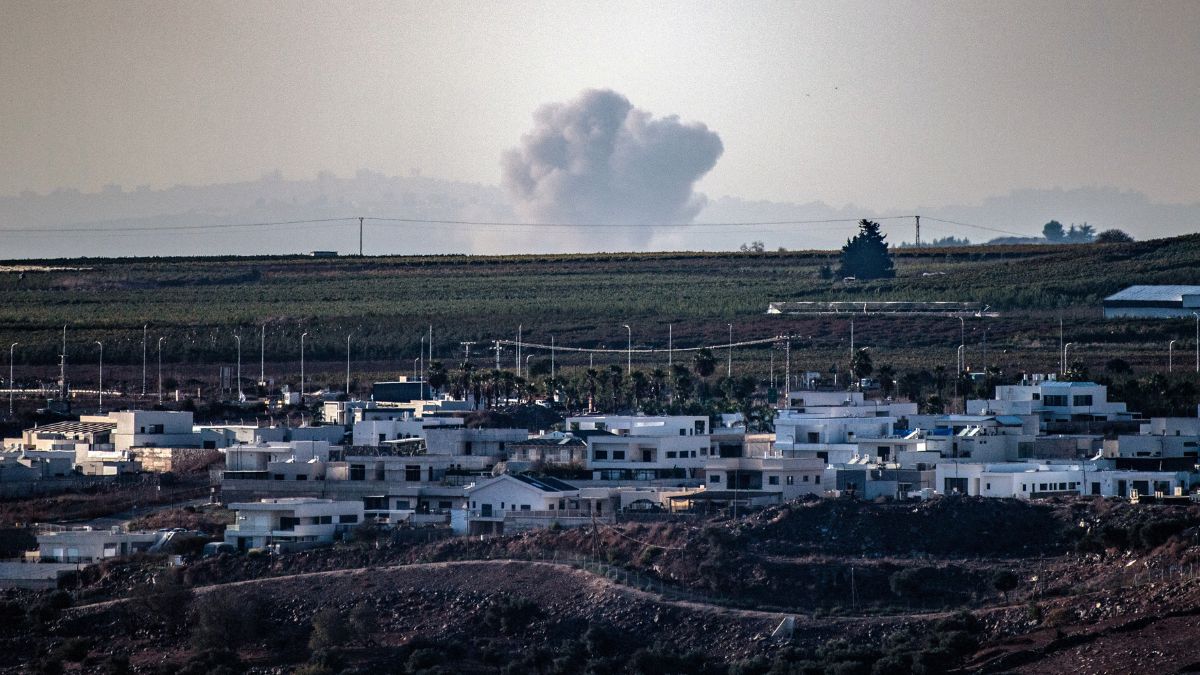As tensions reach towards a tipping point between Israel and Hezbollah, residents of Lebanon have reportedly begun receiving messages from the Israeli military, urging them to evacuate areas believed to be Hezbollah strongholds.
The Israeli military recently issued its first formal warning to the Lebanese population since the outbreak of the Gaza war nearly a year ago, vowing to conduct “extensive and precise” strikes. The warnings have sparked widespread fear of intensified bombings, with nearly 500 people already killed in Lebanon’s south and east.
Lebanon’s state-run National News Agency (NNA) reported that people in Beirut and various other regions had received phone warnings, labelling them part of a “psychological war” employed by Israel.
The messages were transmitted via landline and mobile phones, often from undisclosed numbers. Some residents received direct calls with recorded messages, while others received text messages urging them to distance themselves from Hezbollah-held locations.
“I received a text message that said: ‘If you are in a building where there are Hezbollah weapons, distance yourself from the village until further notice,’” a resident of Beirut told AFP.
In a video posted on X, Israeli army spokesperson Daniel Hagari said, “We ask residents of Lebanese villages to pay attention to the message and warning published by the [Israeli military] and heed them.”
How did Israel deliver the messages?
The nature of the communication has led to speculation that Israel hacked into Lebanon’s telecommunications networks to reach civilians. Imad Kreidieh, the head of Lebanon’s state telecom provider Ogero, confirmed that the country’s landline network blocks all calls originating from Israel.
However, he suggested that Israel bypassed this system by using international phone codes from friendly nations. Kreidieh’s assertion highlights the depth of Israel’s reach into Lebanon’s communication infrastructure, prompting concerns about data privacy and security breaches.
Minister Ziad Makary’s office in Beirut, which is situated near other government buildings, confirmed receiving a recorded message instructing them to evacuate.
The Israeli military has a history of such tactics, using warnings to minimise civilian casualties and simultaneously leverage psychological warfare. These methods have been commonly used during Israeli military campaigns in Gaza, as confirmed by military analysts.
Are these warnings part of Israel’s psychological warfare?
The warnings delivered in Lebanon resemble tactics used in Gaza, where Israel employs messages to create fear among civilians, all the while demonstrating its technological prowess. The warnings, though purportedly issued to reduce civilian casualties, are also indicative of Israel’s surveillance capabilities.
Israeli forces are known to have targeted areas where their intelligence suggests Hezbollah activities, often deploying missiles shortly after issuing evacuation warnings.
“Israel has access to landlines, car plate numbers, and mobile phones,” Elijah Magnier, a conflict analyst told Al Jazeera. “They can communicate directly with civilians, much like they do in Gaza or the West Bank. It’s no surprise that Israel knows exactly who lives where and can use this data in real-time.”
What does Israel’s history tell us?
There is history to Israel’s data gathering. In 2007, Israeli Mossad spy networks were discovered to be monitoring Lebanese communication systems. The 2006 war between Israel and Lebanon left behind a staggering toll: 1,191 to 1,300 Lebanese casualties and 165 Israeli fatalities.
According to reports, Israel has continued to maintain its intelligence network in Lebanon, gathering critical information over the years.
Experts believe that Israel, through its Mossad agency, has infiltrated Lebanese networks long before the recent hostilities erupted in October.
In a similar incident in 2018, Lebanon accused Israel of hacking mobile lines in the Kafr Kila village, sending recorded messages that threatened imminent explosions. Amal Mudallali, Lebanon’s representative to the United Nations, had then condemned the actions as a “serious attack” on Lebanon’s security and privacy, calling for international condemnation of Israel’s hostile behaviour.
Just last week, 37 Hezbollah members were killed after devices presumed to belong to them detonated across the south of Lebanon. While Israel did not claim responsibility, most analysts believe the explosions were part of its covert operations.
Israel’s use of sophisticated spyware is well-documented, with the notorious Pegasus software developed by Israeli company NSO Group being employed by numerous nations to monitor their citizens. According to a 2021 investigation by Amnesty International, this tool has been linked to violations of privacy worldwide, including in Lebanon.
How weak is Lebanon’s data privacy framework?
Experts have also criticised Lebanon’s inadequate data privacy laws, which have made the nation more vulnerable to such breaches. The Lebanese Constitution does not explicitly protect electronic privacy, and laws related to surveillance are weak.
In 2018, Lebanese embassies exposed the personal data of thousands of Lebanese citizens registered to vote abroad, leading to questions about the government’s role in potential leaks.
Moreover, the Lebanese security agency has been implicated in hacking campaigns that have targeted individuals using popular messaging apps such as WhatsApp and Telegram. Known as “Dark Caracal,” these campaigns have compromised thousands of gigabytes of user data. This lack of a robust legal framework has left the country exposed to external and internal threats alike.
With an increase in reported WhatsApp hacking incidents and other suspicious activity targeting Lebanese citizens, concerns are mounting about the nation’s cyber vulnerabilities in a region where technological dominance can determine the course of conflicts.
With inputs from agencies


)

)
)
)
)
)
)
)
)



